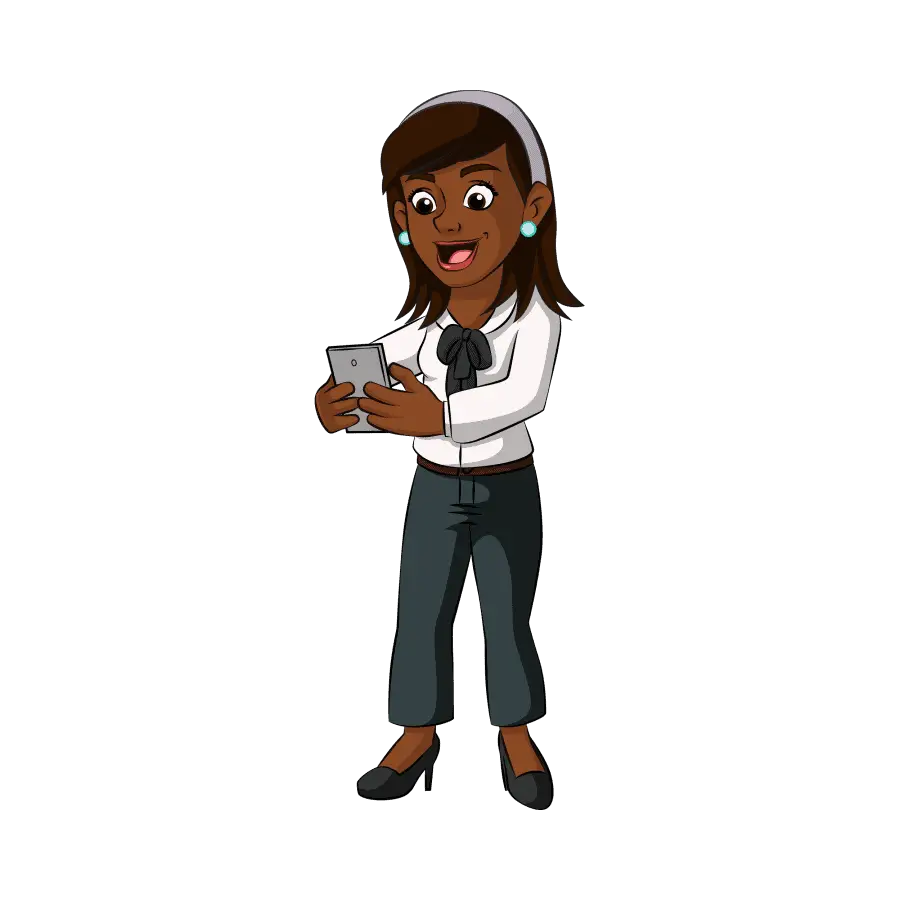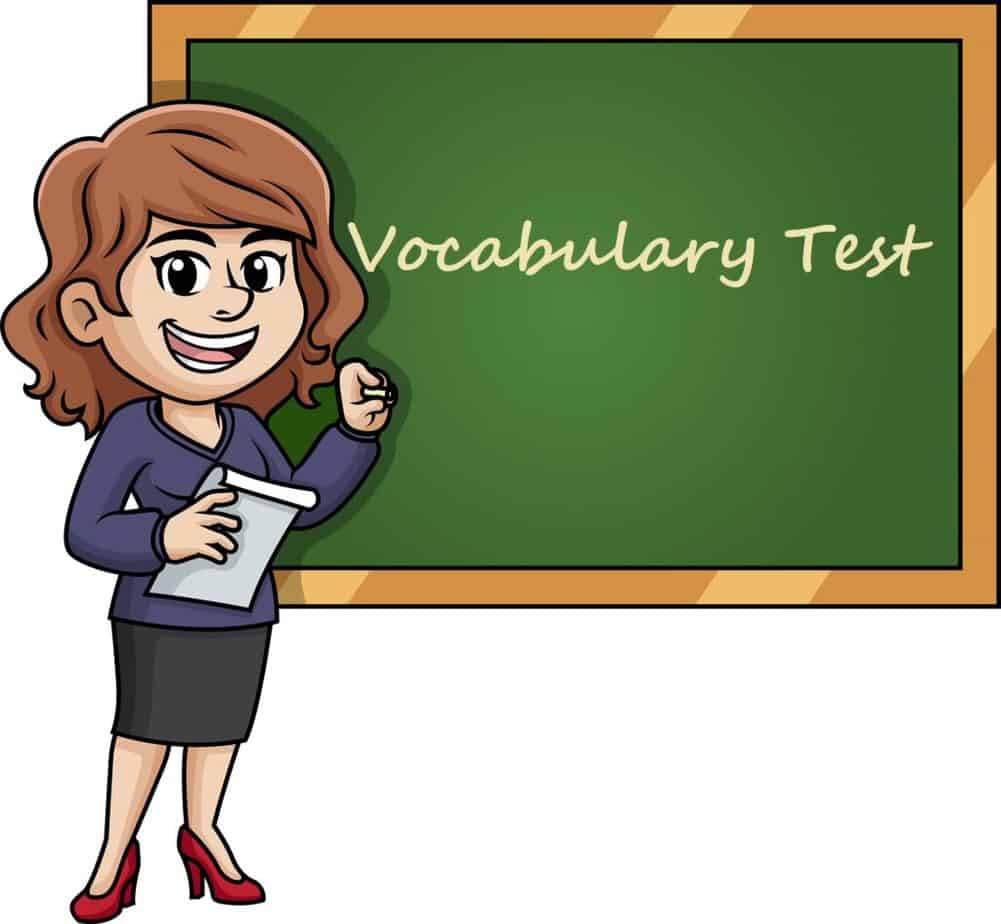
For people who have always wanted to learn a foreign language or plan to take a trip outside of the country, a language learning app might seem quite enticing. Even students currently taking language courses can use language learning apps to supplement their classes. But how effective are language learning apps?
Language learning apps are effective in keeping the user entertained enough to continue learning. They are great supplements to a robust language learning plan. However, apps should not be used as primary language tools as they struggle at helping students use languages dynamically.
This article will explore why language learning apps are not as effective at helping people learn words and phrases used in ordinary situations, as well as why so many people are addicted to apps like Duolingo. Language learning apps do exactly what they are designed to do, even if that does not align with the traditional idea of effectiveness. Read on to learn more.
Contents
The Effectiveness Of Language Learning Apps

When you talk about language learning apps’ effectiveness, it is crucial to understand what you mean by effectiveness. In some senses of the word, language learning apps are incredibly effective, whereas they are completely missing the ball with others. How is it possible for an app to be both effective at teaching language and ineffective?
Language learning apps have to tackle the challenging job that all teachers must face: conveying the content to their students to help them understand and is still interesting.
Many people who have tried to learn a language from flashcards or language comparison dictionaries often lose those skills because they stop practicing.
Language learning apps have generally taken the approach that it is more important to keep their audience coming back for more than it is to ramp up the difficulty of the lessons. This might mean that each lesson or unit does not teach the student as much about the foreign language as a phrasebook or class would, but the student is more likely to continue learning.
We know that the best way to lose language skills is to stop practicing, so language learning apps might be on to something with their addictive strategy.
If they can keep people interested and learning, over time, a student can develop their foreign language skills. Language learning apps just need more time than more intensive types of learning.
This is also true for the beginning stages of language learning. The all in one program we always use in our family to start a new language is Rocket Languages.
They have an app on iOS and Android that means you can take your fast track through the beginner to intermediate levels of your language journey with you wherever you go. They offer this mobile access as a supplement that complements a robust language learning system.
I recommend their free trials so you can see it for yourself. They have these no obligation trials for Spanish, English, Japanese, French, German, and many others.
Duolingo And The Enthusiastic Owl
When you say the words ‘language learning app,’ the first app that often comes to mind is Duolingo. Even if the app was not effective in helping you learn another language, they must be doing something right to be so ubiquitous. If nothing else, Duolingo is extraordinarily effective at making language learning fun.
And I can attest to the importance of fun in learning, as a public school teacher for almost 20 years. Teachers go to great lengths to make seemingly boring topics like algebra and grammar fun through games, songs, and projects. However, even research now shows that fun is an important factor for adults in retention of new material, too.
“Fun and enjoyment could prove to be as beneficial and important as it is currently considered in children’s learning” (Dorothy Lucardie, in The Fourth International Conference on Adult Education, Federation University, Australia, 2014)
If your definition of effectiveness involves how eager the student is to keep learning and exploring books and articles in their new tongue, then Duolingo is super effective. However, many a student of the complimentary green owl has noticed that Duolingo builds your language skills through pattern recognition and multiple-choice answers.
That is great if you have been asked a question or given some kind of prompt to respond to. Still, a significant part of the language for many tourists or people new to the area is asking questions and striking up a conversation about a new topic. Duolingo does not focus on the ability to formulate your own sentences or thoughts nearly as much as responses.
For some people, that might not be a problem, but they will need to supplement their Duolingo lessons with another course or a dictionary for most people. It is not that Duolingo does not give you the words, but the app does not give you the chance to make up your own sentences or practice putting vocabulary words together as traditional learning does.
The Looming Tower Of Babbel
Unlike Duolingo, Babbel spends more time concentrating on words and phrases for common social situations. This might seem like it neatly solves the problem of effectiveness, but there is a cost, both literally and figuratively speaking. Babbel is a paid app, so for people who can’t afford the price, Babbel looms just out of reach.
However, there is another cost too. It is no coincidence that Babbel has a much smaller audience than the studious green owl’s app. People find it more manageable, and therefore more fun, to answer multiple-choice questions. Ask any student in any subject, and the choice is clear. When you know that one of the options is your answer, you have a better shot at choosing it.
With Babbel, you are more likely to learn pragmatic turns of phrase that will get you through a majority of everyday social situations. If that is what you are looking for in an effective language learning app, that’s fine, but most people turn to an app because traditional methods bore them or don’t work for them.
This means that people who learn through Babbel are more likely to become frustrated with navigating a foreign language’s complexities. They might not spend as much time with it or quit altogether, especially since it is a paid app. Paying for something that you are not enjoying is an unpopular choice.
How Do You Quantify App Effectiveness?

Another aspect of determining the effectiveness of language learning apps in general or a specific app is how you quantify effectiveness. As mentioned above, enthusiasm, or lack thereof, is a significant hurdle to jump when it comes to learning a language, but it is not the only one. What does an effective language learning app do?
Depending on your view of what is essential in learning a language, you might end up with a wildly different focus in a language learning app. Ideally, a student of language would learn all five of the essential aspects, but there is often one or two that language teachers focus on at the beginning. The critical aspects are:
- Vocabulary
- Syntax
- Pronunciation
- Pragmatics
- Confidence
One way many qualitify success in learning a language is by the ability to speak the language. Benny ‘The Irish Polyglot” Lewis has changed the world of language learning with his unique approach to learning languages by speaking them from the beginning.
His is not so much a course on a specific language as it is a course on how to learn a language. He also has guides on specific ‘hacks’ to some of the most common languages people try to speak.
I recommend his very cost effective and very innovative courses to anyone wanting to actually be able to speak another language. You can check out his courses here.
Vocabulary
Some people might argue that effectively learning a language means that you have a comprehensive vocabulary. In fact, many English teachers use the breadth of vocabulary to measure their students’ grasp of the material. Having a lot of words means that you can understand and respond to a variety of situations and topics.

It also means that you are more likely to be able to read, which is crucial in most situations outside of the verbal conversation. Signs are a necessary function of getting around, watching out for hazards, and knowing that you need to leave your rainboots in the lobby of a building instead of tracking mud and dirt all over the nice carpet.
Syntax
Others might say that even if you don’t have a lot of fancy words at your disposal, the integral part of learning a language is understanding the grammar and knowing how to conjugate verbs. That way, the words you do know will be said in the correct order, and someone can understand them and teach you any words you might not know yet.
Pronunciation
Another faction could legitimately build a case for pronunciation over all else. After all, having all of the words in the world perfectly crafted into a syntactically correct sentence won’t matter if no one can recognize any of your words. Nor would you be able to recognize theirs if you had no idea that, for example, -oi in French sounds like ‘wah’ not ‘oy.’
Pragmatics
This is the area where language learning apps tend to fall short. Slang phrases and typical tourist sayings, for some reason, tend not to be covered as comprehensively in language learning apps. It is somewhat strange because you would think that some of the first words or phrases you would learn in a foreign language would be the ones you would use daily.
And yet, many people can go for months at a time, dutifully practicing their Hebrew or Spanish without knowing how to say היכן חדר האמבט or dónde está el baño? (That means where is the bathroom?)
If you are learning a language to prepare for an upcoming trip or only need to say a few crucial phrases, a tourist book will likely be more helpful than an app. I recommend anything by tried & true Rick Steves such as this Spanish Phrase Book and Dictionary (found on Amazon).
People who use language learning apps often laugh about how silly the words and situations depicted in the practice sections are. Knowing how to say there is a snake in my boot in Irish (tá nathair i mo bhuatais) is entertaining but not very helpful, considering that Ireland is one of the few places in the world where there are no native snakes.
Confidence

Languages are vast and constantly evolving. It can be intimidating for a student who has just started learning to muster up the courage to try talking to another person. One of the goals of a language learning app is to allow you to practice and become motivated enough to overcome your fears and start talking to people who know the target language.
Every language teacher will agree that the absolute best way to learn another language is through total immersion.
Listening to someone speak to you in the language with their native accent and then stumbling through your responses is the fastest and most effective way to learn. Language learning apps give you a metaphorical kick in the butt to start talking.
It is no coincidence that language learning apps are so kind to you. They do evaluate your pronunciation or spelling, but they shower you with praise at every opportunity.
This is partially to keep you coming back for more (and possibly paying them more) but also to boost your confidence in your language skills so that you can immerse yourself.
Other Factors In App Effectiveness
Of course, the way a language learning app teaches language itself does not necessarily dictate how effective it is. That might seem counterintuitive, but there are a lot of factors when it comes to learning, and the actual demonstration of words and phrases is hardly the entire package.
The app’s availability, the student’s motivation, and supplementary materials all affect it.
Cost
You might say that language learning apps that cost money are more effective because the investment of money makes someone more determined to learn and thereby get their money’s worth. Or perhaps the paid program has more to offer you the consumer, so you’re language learning is elevated.
However, you might also say that free apps are more effective because you can learn more languages faster without having to pay to unlock advanced courses.

Additionally, the larger availability of a free language learning app will make the app worth it to a broader audience and promote language learning in more people.
Even if they forget to practice for a while, it won’t cost them anything, and they may return. Once again, how effective an app is does involve the cost, but various factions will argue for both sides of the equation.
After all, an app is only as effective as what the people who are using it get out of the experience. If a language learning app is prohibitively expensive for most customers, it denies that experience and loses a lot of its effectiveness.
Time Invested

This varies somewhat from app to app, but most language learning apps benefit from the idea that you only have to spend around twenty minutes a day fully completing the lesson and getting your practice in. This is a huge advantage for professionals and students alike who struggle to find the time to sleep, let alone learn a new language.
For people with busy schedules, it is not so hard to find a spare twenty minutes to practice saying ហេតុអ្វីបានជារថភ្លើងរបស់ខ្ញុំយឺត? (Khmer for why is my train always late?) while waiting for your train to come.
However, as with all things, the more time you are willing to spend per day on something, the faster and more effectively you will learn.
There is some give and take with time invested, though. Language learning apps are most effective at enticing people to keep coming back. If they required students to spend, for example, an hour every day practicing, a lot of people might quit in frustration or because they just don’t have that kind of time to devote.
Motivation
Some people might argue that the problem does not lie in the language learning apps but in the people’s motivation. Many people within the United States might be interested in learning a second language for fun or as a form of entertainment. Still, native English speakers do not have the same pressures to learn another language besides their native tongue.
It might be disingenuous to say that language learning apps are not effective based on English-speaker input and data because the lack of serious motivation is a major factor when it comes to learning anything, especially another language. Non-native English speakers might find that language learning apps are actually quite effective.
If people are just playing on Duolingo because they have grown tired of Solitaire and Sudoku, it is no wonder that they might not be effective in learning their target language. On the other hand, learning English is often a necessary tool for communication in work environments, even in non-English speaking countries.
Survival, desperation, and need sometimes tear us down a notch or two. Sometimes it is the catalyst that causes us to make those life decisions that change everything.
Many people need to learn English to survive and thrive in a world where English has become the new lingua franca. If the motivation is there, the language learning apps at your disposal might be infinitely more effective.
However, motivation also often leads to the inclusion of supplementary materials, which we will cover next.
Read this other article I’ve written if you’d like more information about motivation and language learning.
Supplementary Materials
Obviously, the effectiveness of a language learning app is severely impacted by any or all of the supplementary materials available to the student. This is not just talking about Google Translate either. When language learning apps like Duolingo or Babbel get people excited about a language, they might purchase other books or games to keep learning.
Additionally, quite a few people learn another language because they plan to take a trip or even move to that location. Suppose you are learning Russian with the intention of moving to Russia or have already moved there and realized that you ought to speak the language. In that case, a language learning app will be far more effective because you are also immersed in the language.
Many people living in non-native English-speaking countries find that the sheer amount of entertainment available in English helps them learn it faster. If you practice your Japanese while also binge-watching all of your favorite animes, you will also find that your experience with a language learning app is more effective.

People don’t live in a bubble, and it is hard to quantify something like the effectiveness of a language learning app that way, either. If it is doing its job and teaching someone a new language, how can you tell whether that language comes solely from the app or from other sources around them in their daily lives?
The Final Talking Point on Effectiveness Of Language Learning Apps
While it might seem easy to dismiss the effectiveness of language learning apps since they move at a much slower pace than traditional ways of learning, they are more effective at keeping people’s interest steady and motivation going in learning the language.
Motivation can be the deciding factor in whether a person completes a goal or gives up. This alone makes the use of these apps valuable, if not as a primary source of language learning, as a secondary motivator.
But ultimately, how effective you rate a language learning app depends entirely on how you define effective.
Sources
https://www.theatlantic.com/magazine/archive/2018/12/language-apps-duolingo/573919/
https://www.sciencedaily.com/releases/2020/06/200609095027.htm
https://doi.org/10.1111/flan.12454
https://www.academia.edu/27892480/The_International_Handbook_of_Mobile-Assisted_Language_Learning
